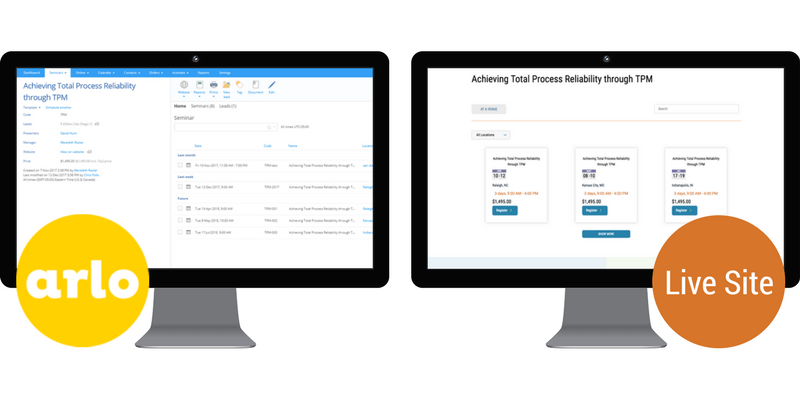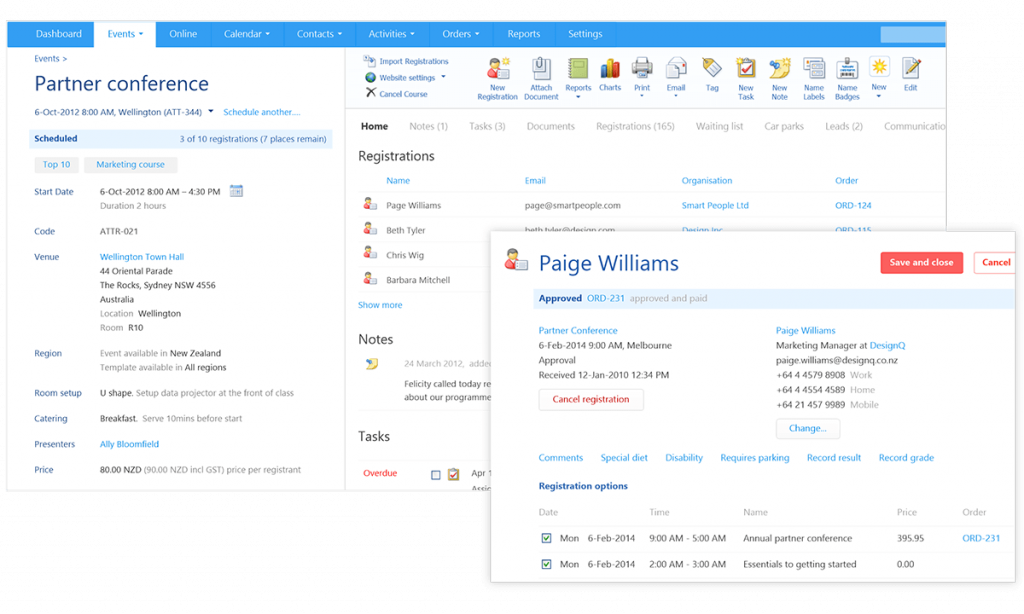
Marshall Institute Technical Discovery
Marshall and PINT worked together to identify all of the pieces in its digital ecosystem, determine each platform’s purpose, and find a solution to unify these processes.
Marshall Institute is an asset management consulting and training company dedicated to helping companies improve the maintenance contribution to their organizational performance.
Client: Marshall Institute
Location: Raleigh, North Carolina
Industry: Training Services
PINT Services: Digital Transformation, Digital Consulting, Systems Integration
Technology: Research on existing third-party event management software solutions

Challenge
PINT engaged with Marshall on a different project than the technical discovery (website functional discovery) and the discussion of revamping the entire Marshall ecosystem came up during the User Experience & Information Architecture Discovery Phase. Together, PINT and Marshall decided to put the website redesign on hold and to focus instead on a possible major overhaul of the website and backend.
Marshall Institute was running fully custom and unsupported legacy platforms to manage the day-to-day operations of its business. Historically, the essential business functions were distributed among several separate systems: Peopleware for course registration and management, a bespoke system for resource scheduling and forecasting (called “CAS”), and another for consultant management (called “Job Packer”). The latter two were linked by a common Access database (called “Combined”).
Marshall Institute had begun to modernize its digital ecosystem by moving purely financial functions out of these legacy systems and into dedicated accounting software (Quickbooks). This rationalized invoicing and billing, but also added to the proliferation of systems and integrations to maintain.
The main challenge Marshall Institute faced was simply outdated systems that required a fair amount of manual work to accomplish the overall goal. The back end was heavily customized, which made it very difficult to make any internal back-end changes. Marshall Institute decided to streamline business processes into one platform, or at least into a set of solutions that was currently supported and maintained.
PINT’s Technical Research Process
PINT first completed a deep dive evaluation of Marshall Institute’s existing platforms, what business needs each satisfied, and how these platforms were communicating with one another and with the public website. This review also took into account shortcomings of the current ecosystem, such as cumbersome manual processes, duplicate data entry, and new features that are desired but have been blocked due to the limitations of the legacy systems. This evaluation was carried out via detailed conversations with key stakeholders at Marshall Institute (MI) and follow up requirements analysis at PINT.
This research quickly reached the preliminary conclusion that the “best fit” for Marshall Institute’s needs, as a professional training organization, was likely to be found among the specific subset of learning management systems (LMS) with strong resource management support, rather than in the broader LMS or event management system (EMS) spaces.
PINT then evaluated in detail over a dozen potential LMS solutions, narrowing these down to two options that best address Marshall Institute’s needs. In addition to the “fit” with MI’s requirements, candidate solutions were vetted on a number of quality criteria such as cost, features, accessibility, usability, extensibility, scalability, etc.
Solution
After several hours of research on existing Learning Management, Event Management, and Seminar Management software, PINT provided Marshall Institute with two options that fit the use case best. PINT presented pros and cons, performed demos, and provided a list of key features/differences between each product.
After completion of the product demonstrations, Marshall Institute decided to move forward with the seminar management tool, Arlo. This service provided a user-friendly platform for managing seminar details, resources, and registrations. The Arlo platform also provided a convenient way of calling information to the live website via the Arlo web API, allowing the tool to function similar to a CMS.

Results
Performing a Technical Discovery empowered Marshall Institute to find the best solution for each piece in its digital ecosystem and bring its day-to-day functions into supported platforms. In doing so, Marshall Institute has future-proofed its systems to the best of its ability.
Marshall Institute’s team ultimately decided to implement the Arlo tool, which allowed them to manage all of its resources, seminars, and operations related to training services. PINT was even able to set up the platform to dynamically update the website with newly added/removed seminars, so the tool essentially functions like a CMS.
If your business is in need of a digital transformation, we can help. Contact us today for a free consultation.